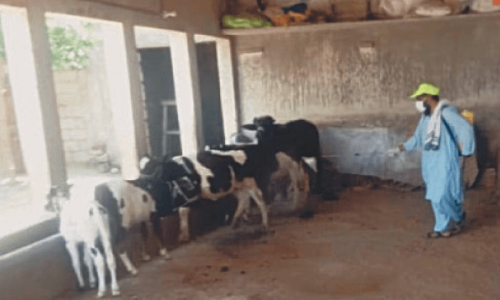ISLAMABAD: A consultation on the state of human rights in the former Federally Administered Tribal Areas suggested avenues for awareness-raising among women about their legal rights on Thursday.
Hosted by the Human Rights Commission of Pakistan (HRCP), the day-long meeting was organised in collaboration with the Friedrich Naumann Foundation (FNF). It included representatives from the tribal areas, civil society and the press, who discussed pressing human rights issues in Khyber Pakhtunkhwa.
Speakers said that after the 31st Amendment was passed, the people of this region grew a step close to recognising their political, economic and social rights. They also cautioned that the state should be careful of not bargaining away women’s rights in mainstreaming in their region, including the right to education, health, employment, mobility and a political voice.
The discussions focused specifically on women’s decision-making power and the avenues available to them in the western districts of KP, women and law and ensuring their right to education, health employment and property.
Speaking at the session, former MNA Bushra Gohar said the veil should now be removed and independent journalists should be allowed to enter western KP to report freely and critically.
“When the people of the former Fata region come out to demand their just rights, they are labelled as anti-state. Pakistan is a security state and the people of the former Fata region have been used as cannon fodder to further the state’s flawed policies,” she said.
Ms Gohar said women have struggled greatly to make the merger of the former Fata region with KP possible, but are excluded when it comes to decision-making about the region.
Participants from KP said tribalism is glorified and used by the state for their vested interest. Therefore, there has been a concerted effort to keep the people of the tribal regions excluded from the mainstream.
A young woman from KP said that instead of questioning the state all the time, people must start with their families.
“We have every right accorded to our brothers including mobility, education, and choice of a life partner and even the distribution of household tasks,” she said.
This is the right time to start pushing for the full-fledged participation of women in the pending local body elections in western KP, and larger budgets should be allocated for their education, Maryam Bibi from Khwendo Khor said.
Discussing the state of infrastructure in the tribal region, Sana Ejaz said that in some cases schools were occupied by the military, while in others these buildings were completely destroyed by war or natural disasters.
Ayesha Bibi from Mohmand demanded answers from political representatives as to how they could expect any discourse on women’s decision-making when the state had failed to provide the most basic tool: a functional primary school.
Former senator Farhatullah Babar said the new legal framework in the tribal areas, the Fata Administration Regulation 2018, did not recognise tribal women or local bodies as there was not a single word about either in the regulation.
He said the women of the tribal areas will remain disempowered, deprived and marginalised unless the 2018 regulation is massively amended by the KP Assembly.
We are dealing with a region in which aggressive patriarchy exists as a formal and informal structure, former senator Afrasiab Khattak said.
“How can the state ignore the fact that 10 million people lack the physical and intellectual infrastructure they need,” he asked.
Mr Khattak said there has been no concept of individual rights in the former Fata region, and patriarchy has been upheld by the law and exists in a very regressive form in these areas.
The meeting concluded with recommendations to improve the state of women’s rights in the tribal regions, as there is a need to increase the participation of women in politics.
They suggested using radio as an effective medium that reaches women with mobility constraints, and the formation of local committees on women’s health and livelihood that should be run by women.
Published in Dawn, November 16th, 2018














































Dear visitor, the comments section is undergoing an overhaul and will return soon.